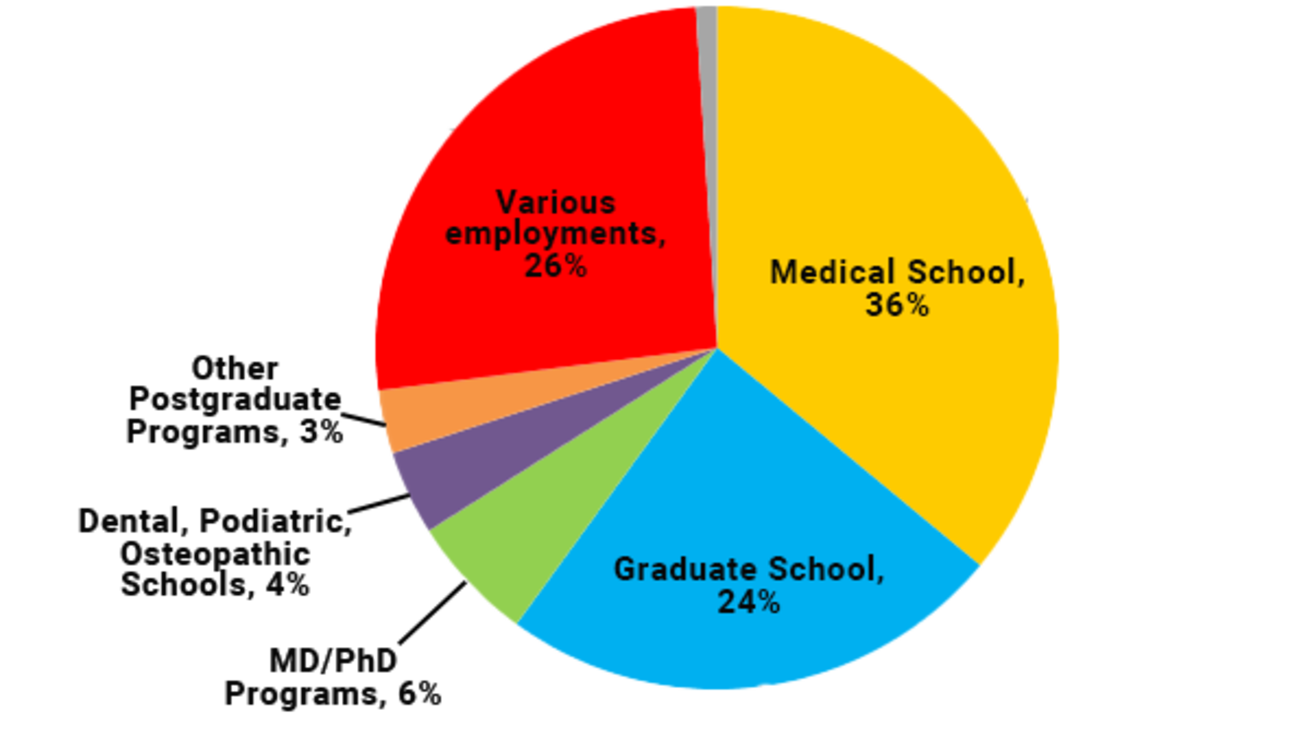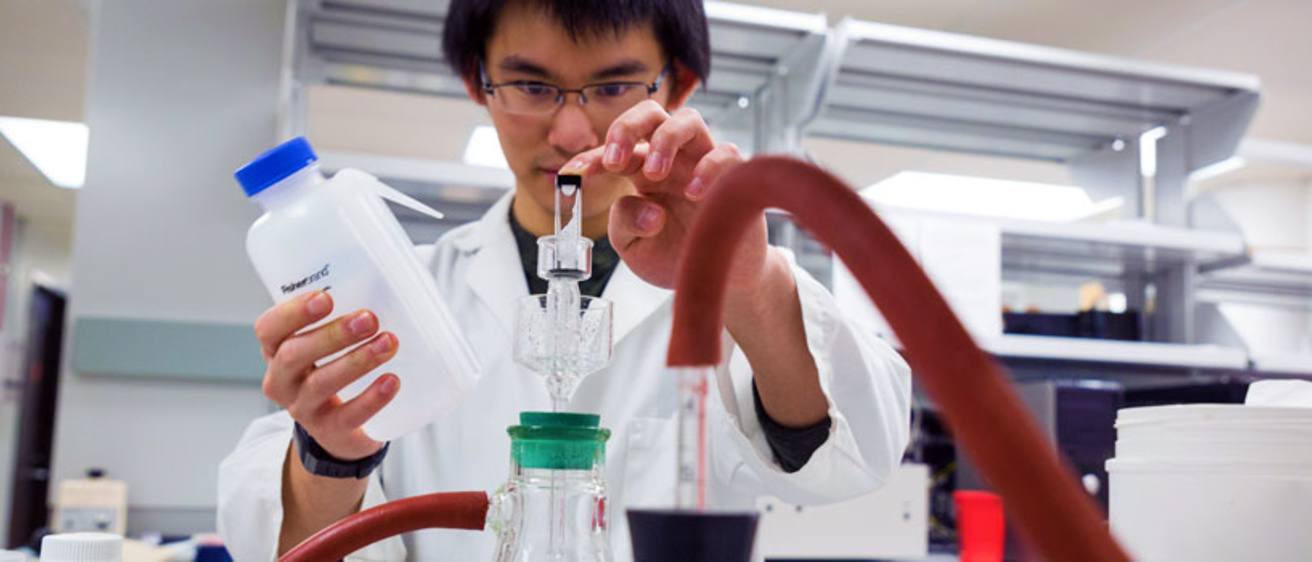Main navigation
Biochemistry and Molecular Biology Degree Programs
Bachelor's degrees in Biochemistry and Molecular Biology are conferred through the College of Liberal Arts & Sciences (CLAS). Students majoring in Biochemistry and Molecular Biology must therefore satisfy the general course requirements and grade point minima, as well as the requirements for the Biochemistry and Molecular Biology major. In addition to the CLAS core requirements, students are required to complete coursework in Biochemistry and Molecular Biology for a bachelor's degree.
All students majoring in Biochemistry and Molecular Biology will initially be placed in the BA degree program. Students in good academic standing can switch to BS degree after completing one semester of organic chemistry.
Students can obtain honors in Biochemistry and Molecular Biology in either degree program. Visit our Honors page for more information.
Why Major in Biochemistry and Molecular Biology?
The Biochemistry and Molecular Biology Major at the University of Iowa is designed for students who are interested in understanding the chemical reactions that support life, the structures and functions of molecules in cells, and the molecular basis of human health and disease.
Biochemistry is the study of chemical processes in living things. The curriculum provides a strong foundation for advanced education in medical, dental, and pharmacy fields, graduate studies in a variety of scientific disciplines, and employment in biotechnology companies.
How does a major in Biochemistry and Molecular Biology compare with other science majors?
| COMPARED TO: | BMB IS MORE | BMB IS LESS |
|---|---|---|
| BIOLOGY | Integrated with the physical sciences, such as chemistry and biophysics | Focused on ecology and evolution |
| HEALTH AND HUMAN PHYSIOLOGY | Based on the molecular mechanisms that occur in living organisms | Based on the anatomy and mechanics of humans |
| MICROBIOLOGY | Focused on eukaryotes and prokaryotes | Focused on microbes, including pathogens |
| CHEMISTRY | Focused on molecular reactions that occur in living organisms | Focused on inorganic reactions and synthetic chemistry |
| BIOENGINEERING | Focused on understanding the molecular basis of health, disease, and developing treatments through molecular and chemical investigations | Focused on the improvement of health through mechanical and materials design |
Please note that there is substantial overlap among these science majors. Students often major in one and minor in another.
What are the Advantages to a Degree in Biochemistry and Molecular Biology?
- Prepares students for health professions including medicine, dentistry, pharmacy, or physician assistant programs.
- Prepares pre-medicine students for the MCAT medical school entrance exam, which has a significant portion devoted to biochemistry and molecular biology.
- Offers many pre-health and pre-pharmacy prerequisite courses as part of the curriculum.
- Allows pre-medicine and pre-requisite courses, including psychology, to count as advanced science electives towards the degree.
- Offers opportunities for research experiences in laboratories early in undergraduate training.
- Offers a flexible Bachelor of Arts or a laboratory enriched Bachelor of Science degree.
- Provides opportunities to network with students in the major through the Biochemistryand Molecular Biology Club (BMBC).

Bachelor of Arts degree
Bachelor of Arts (BA): The BA degree provides a rigorous education in biochemical concepts and practice in the laboratory while allowing the flexibility to specialize in additional disciplines or obtain clinical volunteer experiences. The BA degree in Biochemistry and Molecular Biology is intended for most students including those with pre-medicine, pre-pharmacy, pre-dental and other pre-health professional interests and for students with double majors. This degree requires a minimum of 120 s.h., including 58 s.h. of work for the major.
Bachelor of Science degree
Bachelor of Science (BS): The BS degree is intended primarily for students planning a career in research, including those with a long-term goal of attending graduate school (PhD, MS or MD/PhD) or obtaining a job as a research technician. The BS degree requires twelve additional semester hours of science and laboratory electives. This degree requires a minimum of 120 s.h., including 70-72 s.h. of work for the major.
